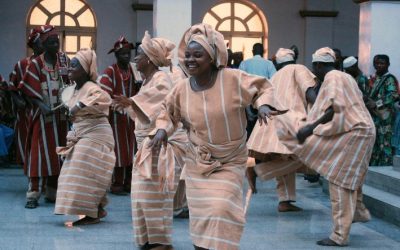Geography and Climate of Benue
Benue, a state in Nigeria, is renowned for its diverse geography and favorable climate. Located in the middle belt region, it features fertile plains, expansive river valleys, and rolling hills that support agriculture and vibrant ecosystems. The climate is generally tropical, characterized by a distinct wet season and dry season, which contributes to the state’s rich agricultural productivity and lush landscapes.
Location and Boundaries
Benue State, located in the Middle Belt region of Nigeria, is known for its fertile land and diverse climate. The state is situated approximately between latitudes 7°30’N and 8°15’N and longitudes 7°45’E and 10°30’E. It shares borders with several Nigerian states, including Taraba to the east, Plateau to the northwest, Kogi to the southwest, Enugu to the south, and Cross River to the southeast. Additionally, Benue has a border with the Republic of Cameroon to the east. The climate of Benue is mainly tropical, characterized by a distinct wet season from April to October, with high temperatures and humidity, and a dry season from November to March. The climate supports extensive agriculture, making it a vital food-producing region in Nigeria.
Topography and Landforms
Benue, Nigeria, is a region known for its diverse geography and varied climate. It is often referred to as the “Food Basket of Nigeria” due to its rich agricultural activities supported by its favorable physical features. The topography of Benue comprises mainly of rolling plains, river valleys, and floodplains, which contribute to its lush landscape and fertile soil.
- Benue is situated in the Middle Belt of Nigeria, with a generally flat terrain that gradually slopes towards the Benue River.
- The region features extensive floodplains along the Benue River, which creates a fertile environment suitable for farming.
- The Plateau State to the east influences the topography, contributing to some hilly areas and escarpments in parts of Benue.
- The landforms include grasslands, riverine deposits, and some small hills, making it a largely low-lying region with gentle elevation changes.
Climate and Weather Patterns
Benue, Nigeria, is located in the middle belt region of the country, characterized by a diverse geography that features the Benue River Valley, fertile plains, and surrounding highlands. The region is predominantly used for agriculture due to its rich soil and favorable conditions. The climate of Benue is classified as a tropical continental climate, with distinct wet and dry seasons. The area experiences a rainy season from April to October, during which heavy monsoon rains rejuvenate the land, while the dry season spans from November to March, characterized by lower rainfall and higher temperatures. Weather patterns in Benue are influenced by the West African Monsoon, bringing moist, warm air from the Atlantic Ocean that results in substantial rainfall during the wet season. The temperatures in Benue typically range from 25°C to 35°C (77°F to 95°F), with harmattan winds sometimes bringing dusty conditions in the dry season. Overall, Benue’s climate supports its agricultural economy and biodiversity, with seasonal variations significantly impacting local livelihoods and ecological systems.
History and Cultural Heritage
Benue, Nigeria, is a region rich in history and cultural heritage that reflects a diverse tapestry of traditions, languages, and histories. Known as the “Food Basket of Nigeria,” it has been a center of agricultural activity for centuries, shaping the lives and customs of its inhabitants. The area’s historical significance is evident in its archaeological sites, traditional festivals, and the enduring practices of its various ethnic groups, making Benue a vibrant repository of Nigeria’s cultural identity.
Historical Background
Benue, Nigeria, is a region rich in history and cultural heritage, often referred to as the “Food Basket of the Nation” due to its fertile lands and extensive agricultural activities. Historically, it has been home to diverse ethnic groups such as the Tiv, Idoma, and Igede, each with their unique customs and traditions. The area was part of various ancient civilizations and kingdoms before becoming an integral part of modern Nigeria through colonial integration. During the pre-colonial era, the peoples of Benue organized themselves into autonomous communities with complex social and political structures. The arrival of European missionaries and traders in the 19th century marked a significant point, leading to increased interactions, the spread of Christianity, and the establishment of colonial administration. Today, Benue’s historical background is reflected in its vibrant cultural festivals, traditional dance, and the preservation of local heritage, which continue to play a vital role in shaping the identity of its people.
Cultural Practices and Traditions
Benue, Nigeria, is a region rich in history and cultural heritage, often referred to as the “Food Basket of the Nation” due to its vast agricultural productivity. The people of Benue have a deep-rooted tradition of farming, which has shaped their cultural identity over centuries. The region is predominantly inhabited by the Tiv, Idoma, and Igede ethnic groups, each with unique cultural practices and traditions that have been passed down through generations.
Traditional festivals and ceremonies play a vital role in preserving the cultural heritage of Benue. The Tiv celebrate the Igyor Immía festival to honor their ancestors and ensure a good harvest, while the Idoma hold the Odah Festival to mark important cultural milestones. These events are characterized by vibrant dance, music, masquerades, and elaborate costumes that showcase the community’s rich artistic expressions.
Music and dance are integral to Benue’s cultural practices, serving as a means of storytelling, celebrating achievements, and reinforcing social bonds. Traditional attire, often made from locally woven fabrics and adorned with beads and cowries, reflects the cultural identity of each ethnic group. The preservation of these traditions is vital for maintaining the community’s sense of history and continuity in a rapidly changing world.
Important Historical Sites
Benue, Nigeria, is a region rich in history and cultural heritage, showcasing a diverse tapestry of ethnic groups and traditions. It is often referred to as the “Food Basket of Nigeria” due to its abundant agricultural produce, which has been a vital part of its cultural identity for centuries. The region is home to several important historical sites that reflect its deep historical roots and cultural significance.
One notable site is the Idoma Nation Palace, a cultural hub for the Idoma people, where traditional ceremonies and festivals are celebrated, preserving age-old customs. The Mbagwa Festival, held annually, is a prominent event that highlights the heritage of the Idoma community through dance, music, and traditional rites. Additionally, the Ochetoha Museum in Makurdi serves as a repository of artifacts and exhibits that depict the history, art, and culture of the various ethnic groups within Benue.
For history enthusiasts, the Benue Museum in Makurdi offers insights into the region’s archaeological findings, showcasing relics from ancient settlements and early inhabitants. The ancient ruins of Wukari, an old emirate with historical significance dating back to pre-colonial times, also attract visitors interested in Nigeria’s historical network of kingdoms and empires. Overall, Benue’s historical and cultural sites highlight its integral role in Nigeria’s diverse heritage and continue to preserve the legacy of its people for future generations.
Demographics and Population
Benue, Nigeria, is a region characterized by its diverse demographics and vibrant population. As one of Nigeria’s key states, it boasts a rich mix of ethnic groups, traditions, and cultures that contribute to its unique social fabric. Understanding the demographics and population dynamics of Benue is essential for appreciating its development, challenges, and the opportunities it presents for growth and stability.
Population Statistics
Benue, Nigeria, is known for its diverse demographics and vibrant population. The state is predominantly inhabited by the Tiv ethnic group, which constitutes the largest population segment. In addition to the Tiv, other groups such as the Idoma, Igede, and Jukun also contribute to the rich ethnic mosaic of Benue. The population of Benue has been steadily increasing over the years due to natural growth and rural-urban migration.
According to recent population statistics, Benue has an estimated population of over 5.7 million residents. The population density varies across different local government areas, with some urban centers like Makurdi experiencing higher concentrations. The demographic distribution shows a youthful population, with a significant percentage of residents under the age of 30. These statistics underscore the importance of sustainable development strategies to accommodate the growing population and foster economic growth in the region.
Ethnic Groups
Benue, Nigeria, is a state characterized by a diverse and vibrant population. The demographics of Benue reflect a rich tapestry of ethnic groups, languages, and cultures, making it a unique region within the country. The population is primarily composed of various ethnic communities, with the Tiv being the predominant group. Other significant ethnic groups include the Idoma, Igede, and numerous smaller communities that contribute to the state’s cultural mosaic.
Languages Spoken
Benue, Nigeria, is a region known for its diverse demographics and vibrant population. The population comprises various ethnic groups, with the Tiv being the largest ethnic community, followed by the Idoma and Igede people. The demographic makeup reflects a mix of rural and urban settlements, with agriculture being a primary occupation for many residents.
Languages spoken in Benue are equally diverse. The predominant language is Tiv, which is widely used in daily communication and local administration. Other significant languages include Idoma and Igede. Additionally, Nigerian Pidgin English and various other indigenous languages are spoken across the region, highlighting its cultural richness and linguistic diversity.
Economy and Agriculture
Benue, Nigeria, often referred to as the “Food Basket of the Nation,” boasts a vibrant economy rooted in agriculture. The region’s fertile lands support the cultivation of diverse crops such as yams, maize, rice, and cassava, making agriculture a vital sector for both local livelihoods and the national economy. This agricultural richness not only sustains the population but also contributes significantly to Nigeria’s food security and economic growth.
Key Agricultural Products
Benue, Nigeria, often referred to as the “Food Basket of the Nation,” boasts a thriving economy heavily reliant on agriculture. The region’s favorable climate and fertile lands support a diverse range of agricultural activities that significantly contribute to both local and national food security.
Key agricultural products in Benue include corn (maize), yams, cassava, rice, and millet, which form the staple diet of the people. Additionally, Benue is renowned for its abundance of vegetables, legumes, and oilseeds such as groundnuts and soybeans. Livestock farming, particularly cattle rearing, also plays a vital role in the economy, making Benue a major center for cattle grazing and dairy production in Nigeria.
Commercial Activities
Benue State in Nigeria is renowned for its vibrant economy and thriving agricultural sector, which play a crucial role in the region’s development and sustenance. The state is often referred to as the “Food Basket of Nigeria” due to its extensive agricultural activities, including the cultivation of crops such as yams, cassava, millet, rice, and maize.
Agriculture is the backbone of Benue’s economy, providing employment to a significant portion of the population and contributing substantially to the state’s revenue. The fertile lands and favorable climate facilitate year-round farming, making it a hub for both subsistence and commercial agriculture. In addition to crop farming, livestock rearing, including cattle, goats, and poultry, is also an important economic activity.
Commercial activities in Benue are diverse, encompassing trade, markets, and small to large-scale industries. The state’s strategic location with access to major roads and proximity to neighboring states boosts commerce and connectivity.
- Local markets are bustling centers for buying and selling agricultural produce, livestock, handcrafted goods, and other commodities.
- Trade fairs and festivals often serve as platforms for showcasing local products, attracting traders and tourists from across Nigeria.
- Benue’s artisans produce a variety of crafts, including pottery, weaving, and metalworks, which contribute to the local economy.
- Small and medium enterprises (SMEs) play a vital role in providing goods, services, and employment opportunities for residents.
- The state government actively promotes commercialization of agriculture and economic diversification to boost overall development.

Industrial Development
Benue State in Nigeria is renowned for its rich agricultural heritage and significant contributions to the country’s economy. The state’s fertile land and favorable climate make it an ideal region for the cultivation of crops such as yams, cassava, maize, sorghum, and vegetables, positioning agriculture as the backbone of its economy. The sector provides employment to a large portion of the population and supports local livelihoods, contributing immensely to both local and national food security.
In addition to agriculture, Benue has seen progressive industrial development aimed at adding value to its produce and boosting economic growth. The establishment of agro-processing industries has facilitated the processing of raw agricultural materials into finished products, creating employment opportunities and increasing revenue. The government and private investors are increasingly focusing on developing agro-based industries, such as flour mills, breweries, and food packing companies, to diversify the economy and reduce reliance on raw crop exports.
Overall, Benue State’s economy is heavily rooted in agriculture, with ongoing efforts to modernize farming methods and expand industrial capacity. These initiatives aim to improve productivity, generate employment, and foster sustainable economic growth in the region.
Government and Administrative Structure
Benue, Nigeria, features a well-organized government and administrative structure designed to promote effective governance and development. The state operates under a democratic framework with executive, legislative, and judicial branches working together to serve its citizens. Local government areas play a crucial role in implementing policies and delivering services at the grassroots level, ensuring that governance is accessible and responsive to the needs of the diverse communities within Benue.
Political Divisions
Benue State in Nigeria has a well-organized government and administrative structure designed to facilitate governance and regional development. The state operates under a democratic system with elected officials overseeing various administrative functions. The government is divided into executive, legislative, and judicial branches, each playing a crucial role in the state’s administration.
The political divisions within Benue State are structured into several administrative units to ensure effective governance across its diverse communities. These divisions include local government areas, traditional councils, and administrative districts. Local government areas are the key political units responsible for grassroots administration and local development initiatives. Traditional councils, led by traditional rulers, play an essential role in cultural and community management, overseeing customary laws and traditional leadership.

- Benue State Executive Council led by the Governor
- Legislative arm comprising the Benue State House of Assembly
- Judiciary responsible for legal matters and justice administration
- Local Government Areas (18 in total) including Makurdi, Gboko, and Otukpo
- Traditional councils and chiefs overseeing cultural and customary affairs
Local Government Areas
Benue State in Nigeria has a well-structured government and administrative framework designed to facilitate effective governance and development. The state government is headed by the Executive Governor, supported by a Deputy Governor and various Ministries and Agencies responsible for different sectors such as education, health, and infrastructure. The legislative arm comprises the Benue State House of Assembly, which enacts laws and policies for the state.
At the local level, Benue State is divided into Local Government Areas (LGAs), each governed by a Local Government Council. These councils are led by chairpersons elected by residents within their respective LGAs. The LGAs are responsible for local administration, implementing state policies, and providing essential services like healthcare, markets, and local security. The administrative structure fosters decentralization, ensuring that governance is accessible and tailored to the needs of diverse communities across the state.
Administrative Functions
Benue, Nigeria, has a structured government and administrative framework designed to ensure effective governance and service delivery. The state operates under a democratic system with an executive, legislative, and judiciary arm, all working together to improve the welfare of its residents. The governor, as the chief executive, oversees the implementation of policies and administrative functions, supported by various ministries and agencies.
The administrative functions in Benue include policy formulation, implementation, monitoring, and evaluation. Government offices and departments are responsible for managing public resources, providing essential services such as education, health, agriculture, and infrastructure. Local government councils also play a vital role in grassroots administration, ensuring that policies reach and benefit the local communities efficiently.
Benue’s administrative structure emphasizes decentralization to promote more localized governance, with traditional rulers and community leaders collaborating with government officials. This integrated approach helps address local needs effectively and fosters participatory governance, ensuring sustainable development across the state.
Education and Healthcare
Benue, Nigeria, is a region dedicated to improving the quality of life for its residents through advancements in education and healthcare. These sectors play a vital role in fostering sustainable development and ensuring equitable access to essential services. As the community continues to grow, efforts are being made to strengthen educational institutions and healthcare facilities, aiming for a healthier and more knowledgeable population.
Educational Institutions
Benue State in Nigeria is known for its strong emphasis on education and healthcare, which are vital for the development of its communities. The state hosts numerous educational institutions, including primary, secondary, and tertiary schools that aim to provide quality education to its residents. Notable universities such as the University of Agriculture Makurdi contribute significantly to research and higher learning. Healthcare facilities in Benue include government hospitals, private clinics, and traditional healing centers, all working to improve the well-being of the people. Efforts continue to enhance the accessibility and quality of education and healthcare services across the state, despite challenges such as funding and infrastructure development.
Healthcare Facilities
Benue State in Nigeria is known for its growing focus on improving education and healthcare services to enhance the well-being of its residents. The state has invested in building and upgrading healthcare facilities, including hospitals and clinics, to ensure access to quality medical care for all communities. Education sector initiatives have also been prioritized, with the development of new schools and the training of teachers to improve literacy and quality of education across the region. These efforts aim to uplift the socio-economic status of Benue citizens and foster sustainable development in the state.
Development Challenges
Benue, Nigeria, faces significant development challenges in the areas of education and healthcare, affecting the well-being and progress of its population. The region struggles with inadequate infrastructure, limited access to quality services, and high rates of poverty, which hinder educational attainment and health outcomes. Many schools in Benue lack sufficient teaching materials, qualified teachers, and proper facilities, leading to low literacy rates and educational disparities. Similarly, healthcare facilities are often underfunded and poorly equipped, resulting in limited access to essential medical services and high maternal and child mortality rates. Addressing these challenges requires concerted efforts to invest in infrastructure, improve service delivery, and implement policies that promote sustainable development for the improved future of Benue’s residents.
Tourist Attractions and Natural Resources
Benue, Nigeria, is renowned for its rich tourist attractions and abundant natural resources that showcase the beauty and diversity of the region. From lush landscapes and vibrant cultural sites to fertile farmland and mineral deposits, Benue offers a unique blend of natural wonders and cultural heritage for visitors and locals alike. Exploring these attractions provides a glimpse into the area’s significance and natural wealth.
Natural Landmarks
Benue, Nigeria, is renowned for its vibrant tourist attractions, rich natural resources, and stunning natural landmarks. The state is often called the “Food Basket of Nigeria” due to its fertile lands that support extensive agricultural activities. Visitors can explore the lush greenery and diverse wildlife at Yankari Game Reserve nearby or visit the tranquil Awhum Waterfalls, which provide a scenic and serene environment. Benue’s natural resources, including fertile soil and abundant water bodies, make it vital for Nigeria’s agricultural economy. The mysterious and beautiful natural landmarks such as the Mbram River and the Benue River itself not only offer breathtaking scenery but also serve as crucial sources of water and transportation for local communities. These attractions, combined with the warm and welcoming culture of the people, make Benue a significant destination for tourists seeking both adventure and cultural experience.
Wildlife and Conservation
Benue, Nigeria, is renowned for its rich tourist attractions, natural resources, vibrant wildlife, and commitment to conservation. The region boasts scenic landscapes such as the Benue River and expansive farmlands, which attract visitors interested in the country’s agricultural strength and natural beauty. Tourist sites include the Igbo-Ukwu Museum, the Aondo River, and various cultural festivals that showcase the diverse heritage of the people. Benue’s natural resources are primarily centered around fertile land and waterways that support agriculture, making it a vital contributor to Nigeria’s food production.
The wildlife in Benue is abundant, with efforts in place to protect and conserve various species. The region features wildlife reserves and game parks that host animals like elephants, antelopes, monkeys, and numerous bird species. Conservation initiatives focus on preserving these habitats and promoting sustainable tourism practices. These efforts not only help maintain biodiversity but also support community development through eco-tourism, ensuring that the natural beauty and wildlife of Benue are enjoyed by future generations.
Tourism Potential
Benue, Nigeria, is renowned for its rich natural resources and diverse tourist attractions that draw visitors from across the country and beyond. The region is often called the “Food Basket of Nigeria” due to its fertile land and abundant agricultural produce, which supports various farming activities and agribusiness. Natural attractions in Benue include the beautiful River Benue, which offers opportunities for boating, fishing, and picnicking, along with scenic waterfalls and lush landscapes that promote eco-tourism. The area’s expansive savannahs and wildlife reserves provide habitats for various species, making it an ideal destination for nature lovers and adventure seekers. Benue’s cultural heritage sites and traditional festivals also add to its tourism potential, showcasing the vibrant customs and history of its diverse ethnic groups. Overall, Benue’s combination of natural resources and captivating attractions holds significant potential for the growth of tourism and economic development in the region.
Challenges and Development Opportunities
Benue, Nigeria, a region known for its rich culture and agricultural prosperity, faces numerous challenges that hinder its development. Despite these obstacles, there are significant opportunities for growth and progress. Exploring the key challenges alongside potential development avenues can pave the way for a brighter future for Benue and its people.
Security and Social Issues
Benue, Nigeria, faces a range of challenges and development opportunities that are crucial for its growth and stability. One of the primary issues is agricultural dependence, which makes the state vulnerable to climate change, climatic variability, and pests, impacting food security and rural livelihoods. Security concerns, particularly cattle rustling, clashes between herders and farmers, and insurgent activities, have also disrupted peace and development efforts, leading to displacement and economic setbacks. Social issues such as poverty, unemployment, and inadequate infrastructure further hinder progress and exacerbate tension among different communities. However, Benue also has significant development opportunities, including its abundant agricultural resources, potential for value addition, and strategic location for trade within Nigeria and neighboring countries. Strengthening security measures, investing in education and health, and promoting inclusive development can help unlock its full potential. Addressing social disparities and fostering community dialogue are essential steps toward sustainable growth and stability in Benue.
Economic Growth Opportunities
Benue, Nigeria, faces several challenges that hinder its full economic potential, including infrastructure deficits, agricultural dependency, and security concerns. These issues can limit growth and deter investment, but they also present opportunities for targeted development initiatives. Strengthening infrastructure, such as roads and energy supply, can enhance productivity and market access. Diversifying the economy beyond agriculture into sectors like manufacturing and services can create more jobs and new revenue streams. Addressing security challenges will also promote a more conducive environment for economic activities. Furthermore, leveraging Benue’s rich agricultural resources through modern farming techniques and value addition can boost exports and local food security.
There are significant development opportunities owing to Benue’s strategic location, fertile land, and youthful population. Investment in education and vocational training can equip the youth with skills needed for diverse industries. Promoting agribusiness hubs and agro-processing industries can increase value chain activities, creating wealth and reducing post-harvest losses. Additionally, fostering partnerships with international development agencies can facilitate access to funding, technology, and expertise. With focused efforts on infrastructure development, security enhancement, and economic diversification, Benue can unlock sustainable growth and improve the standard of living for its residents.
Infrastructure Development
Benue, Nigeria faces several challenges and opportunities in infrastructure development that are crucial for its growth. Despite its rich agricultural resources, the state struggles with inadequate transportation networks, inconsistent power supply, and limited access to modern healthcare and educational facilities. These issues hinder economic productivity and quality of life for residents. However, there are significant development opportunities through investments in transportation infrastructure such as roads, bridges, and rail links, which can improve connectivity within Benue and with neighboring states. Additionally, expanding electricity generation and distribution systems, including renewable energy projects, can foster industrialization and improve living standards. Strengthening healthcare and educational infrastructure also presents an avenue for sustainable development. With strategic planning and partnerships, Benue can leverage its resources and human capital to overcome current challenges and build a resilient, thriving infrastructure network that supports long-term development.





0 Comments